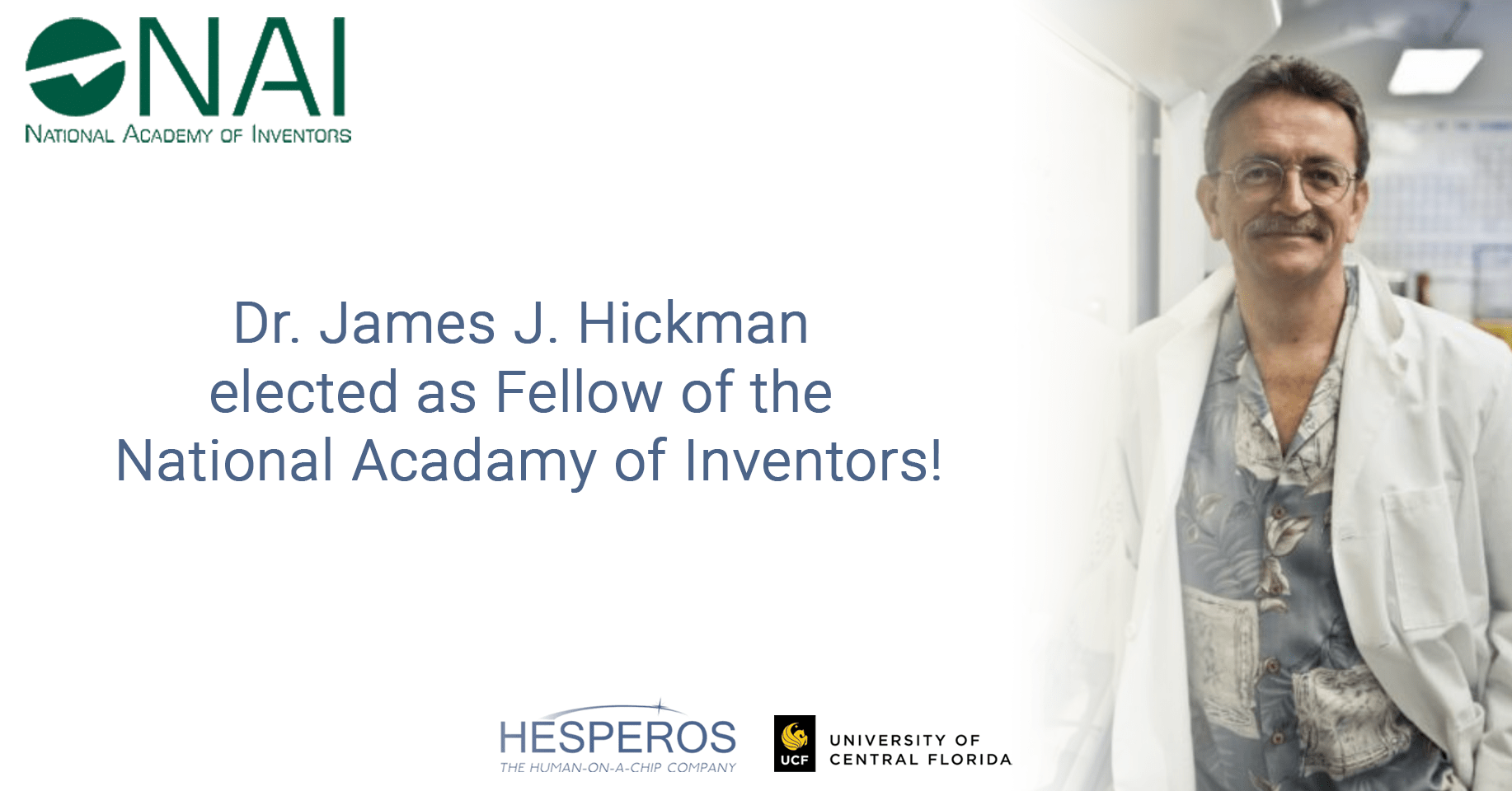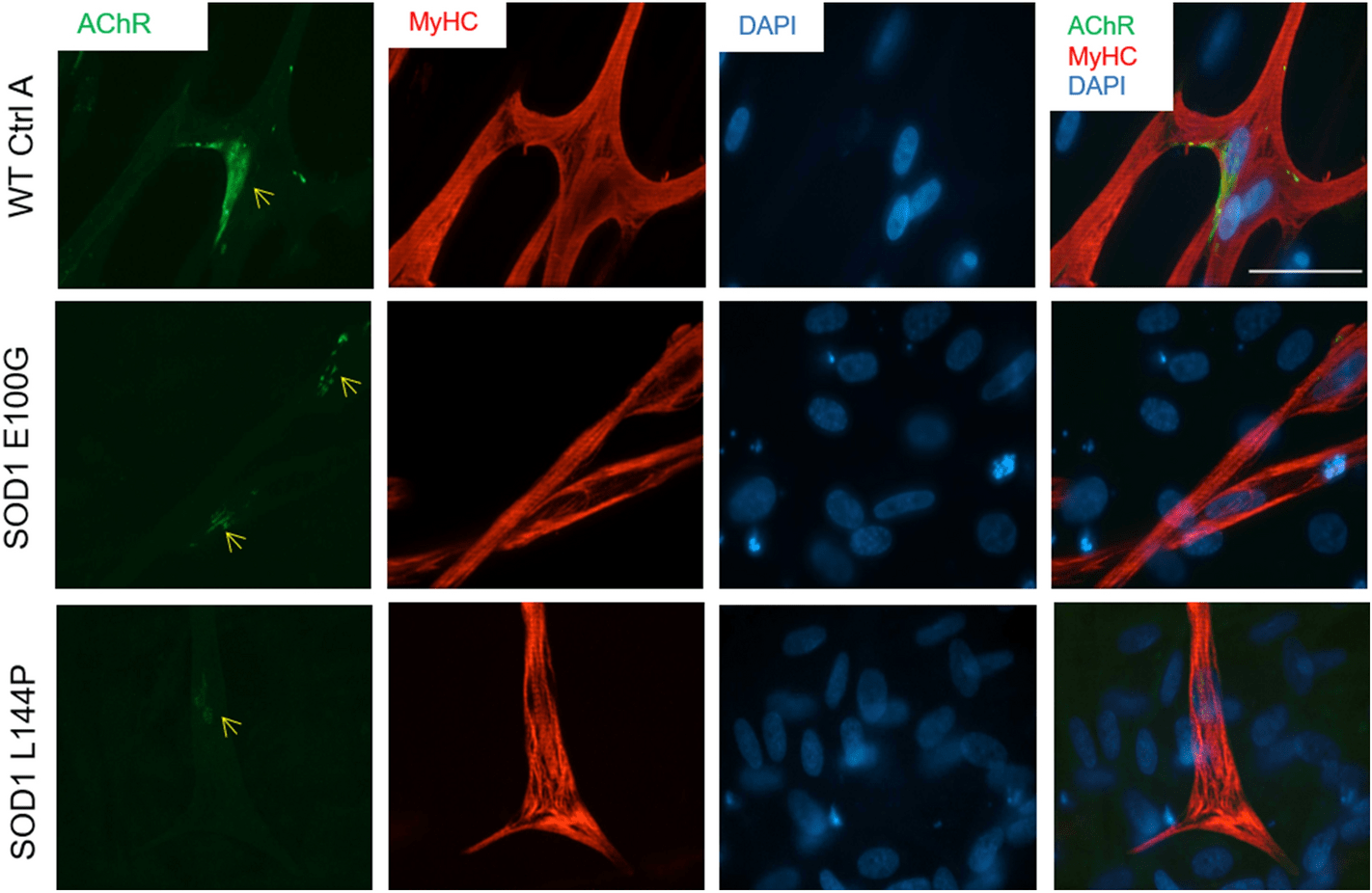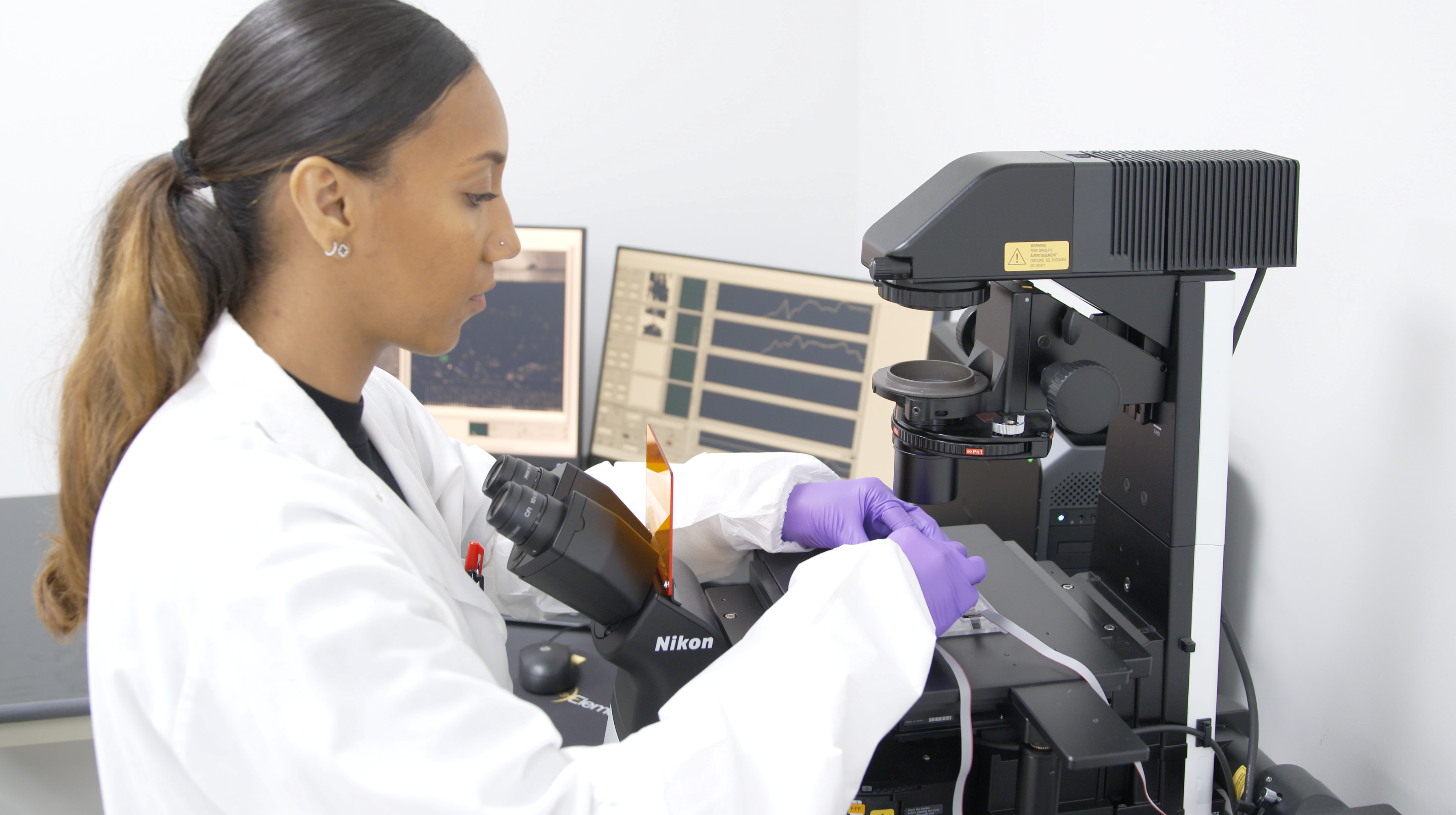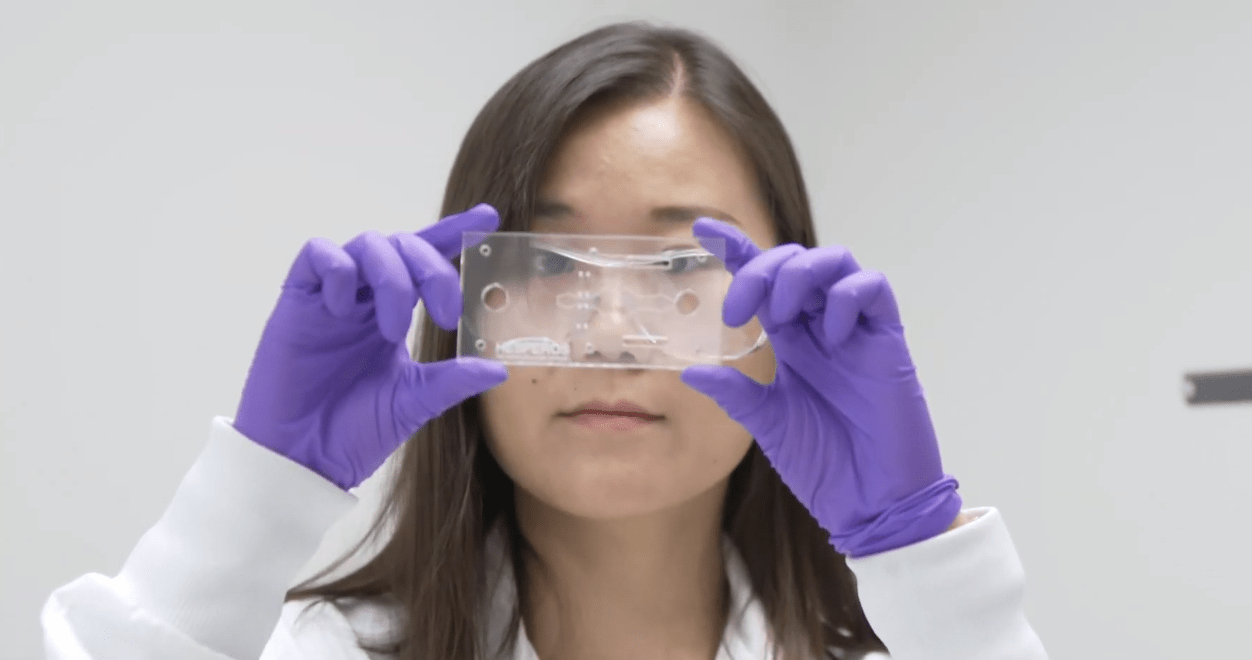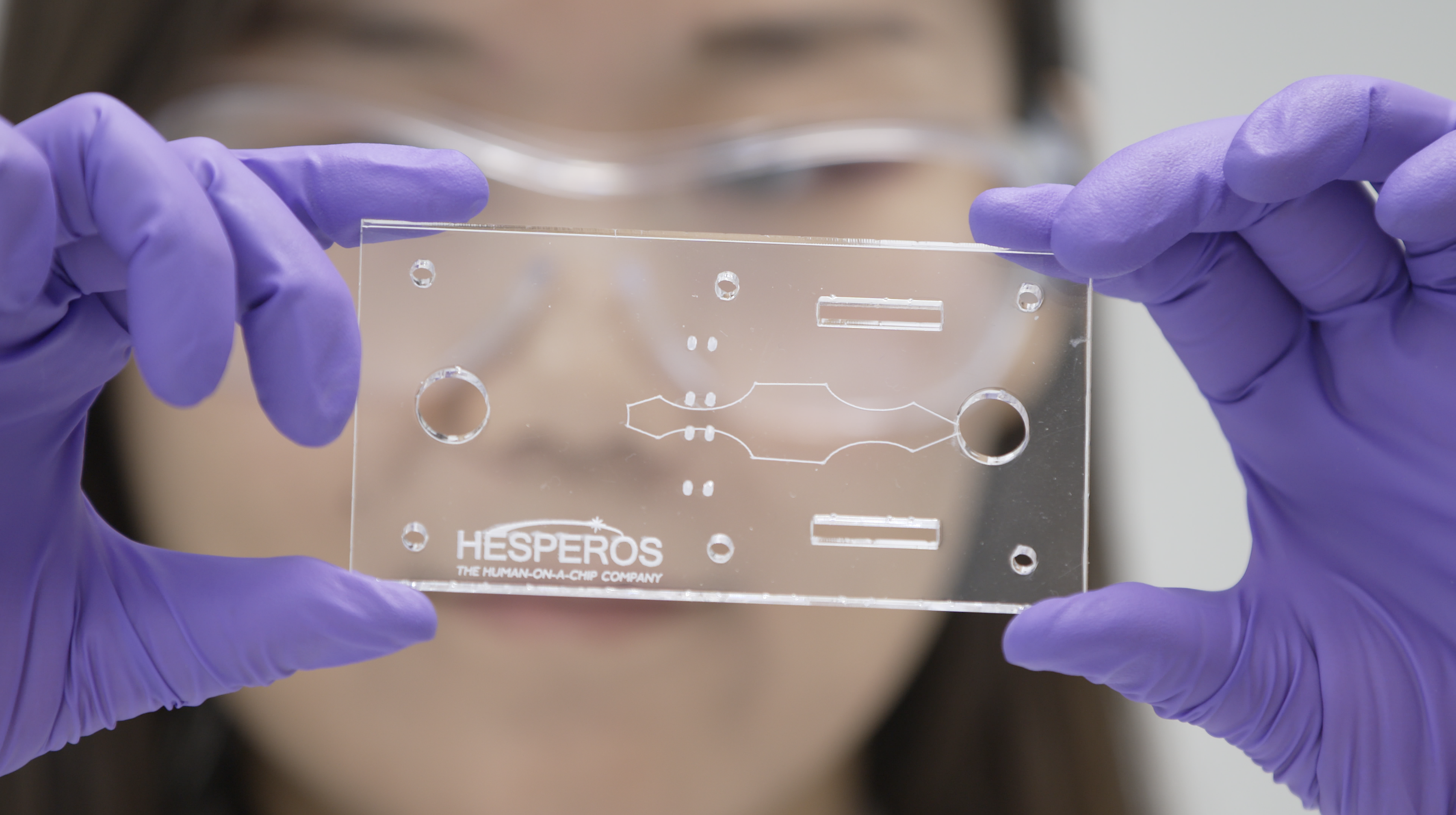Presentation Highlights
This is a company overview presentation given by Dr. James Hickman at this years Florida Simulation Summit 2020 in October. Learn more about the technology and exciting path ahead. Key highlights from the presentation include:
- A brief history of Hesperos
- How the Human-on-a-Chip technology works and the current state of the technology
- Key applications and path forward
Human-on-a-Chip®
Functional in vitro models that accurately predict how new drug candidates will impact the human body – something that has previously required animal testing or human clinical trials to determine.
What’s on each Chip?
Systemic toxicology models with interlinked organs, including: heart, liver, lung, brain, skin, muscle, GI tract, kidney, pancreas, endocrine, bone marrow and the neuromuscular junction in a serum free, recirculating medium utilizing a pumpless platform.
